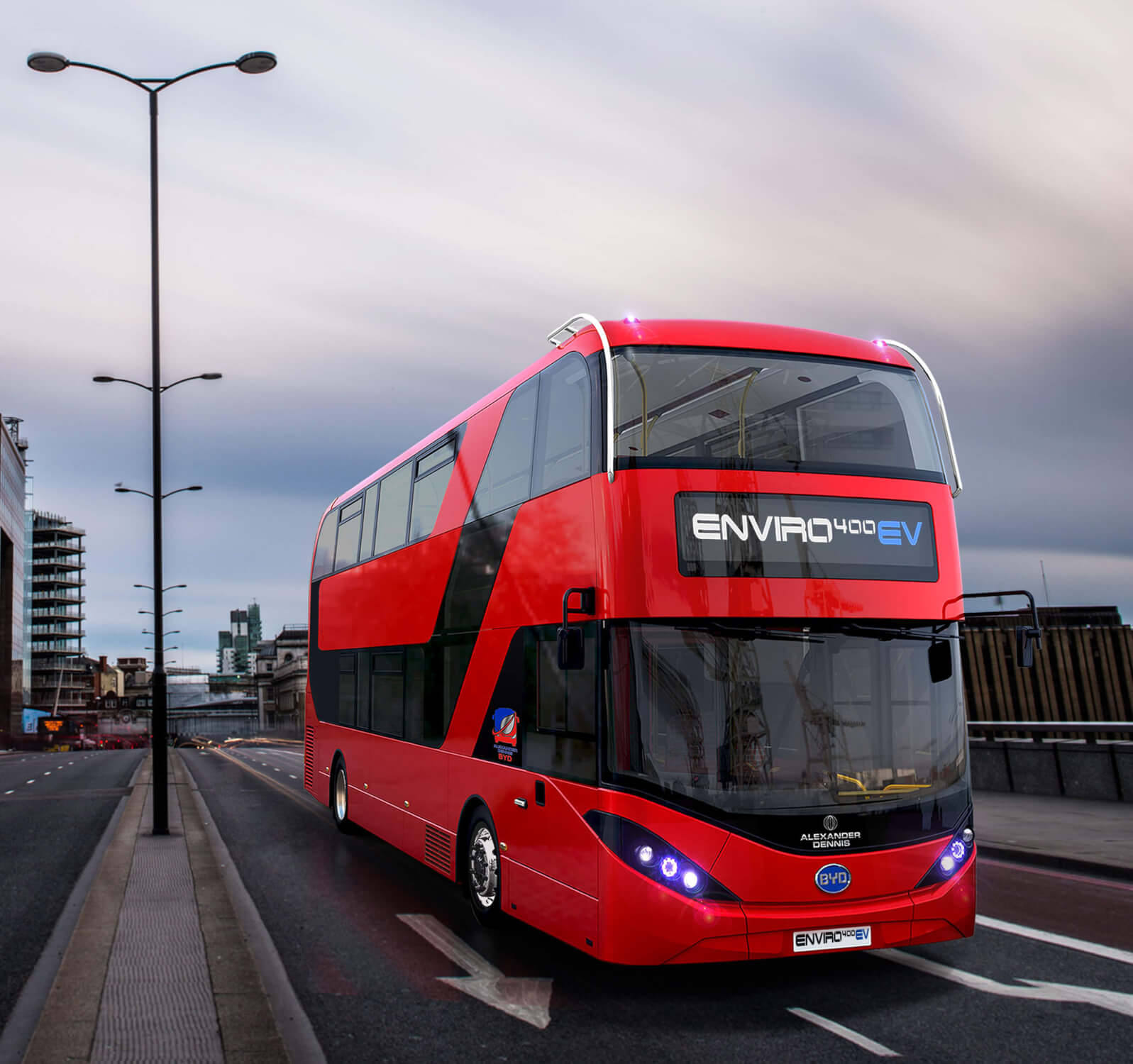
Stagecoach has announced plans to invest £56m in electric buses and supporting infrastructure for Greater Manchester as part of the company’s partnership with the Mayor, Transport for Greater Manchester and other key organisations
Stagecoach has announced £56m plans to deliver investment in electric buses for Greater Manchester.
The first of the planned 105 new zero emissions double-decker buses and associated infrastructure is planned to go ahead from summer 2019, with the company aiming to have the new fleet fully in place by early 2020.
Stagecoach has pledged to invest £34.6m in the project, which is backed by Greater Manchester Mayor Andy Burnham, Transport for Greater Manchester and other key organisations.
The plans are dependent on a bid for £21.5m in support from the Government’s recently announced Ultra-Low Emission Bus Scheme.
New Enviro400 EV City vehicles, each with a range of up to 190 miles and capacity of around 80 passengers, would be built by Alexander Dennis using battery and power electronics expertise from BYD.
A multi-million-pound investment will also be made in delivering infrastructure and power requirements at depot level, with plans to use intelligent chargers to limit loadings on the electricity supply and maximise vehicle availability.
Martin Griffiths, Chief Executive of Stagecoach Group, said: “This game-changing initiative is the biggest single investment in e-bus technology anywhere in Europe. It is a clear sign of our bold ambition to transform Greater Manchester’s bus network.
“Our plans will put Greater Manchester at the forefront of the drive to improve local air quality, and help cement Britain’s position as global leader in manufacturing low-emission vehicles.
“It is also part of our wider partnership proposals to maximise the potential of the bus network to drive the region’s economy and better connect its communities.
“By working together, bus operators, the Mayor and the region’s local authorities can deliver the quick and sustained improvements we all want to see in Greater Manchester’s bus network, building on the major progress we’ve already made and avoiding unnecessary extra costs to local taxpayers.”
Stagecoach’s plans would see the new e-buses – which would replace conventional Euro III and Euro IV vehicles – based at its depots in Hyde Road and Sharston. Major charging infrastructure would allow buses to be charged simultaneously, enabling a 24 hour-a-day operation.
The e-bus fleet would operate four key high frequency services connecting Manchester city centre, Manchester Airport, Manchester Piccadilly railway station, six hospitals and two universities. It would also complement recent public investment in bus priority measures in the south of the city.
Two further high frequency services would be operated predominantly by electric vehicles, supported by existing low carbon certified hybrid vehicles at peak times, meaning 36 buses per hour in each direction would be operated by the new e-bus fleet.
The introduction of new electric buses will also enable the existing low-carbon emissions vehicles to transfer onto two routes serving Trafford and Salford.
The plans are for around 15-20 buses to be introduced a month from summer 2019, with full roll out achieved by early 2020. Infrastructure works would begin in the autumn of 2018 and the aim would be to have this fully completed by spring 2019.
Stagecoach said: ‘The new e-bus fleet for Greater Manchester offers a 62% improvement in CO2 emissions over the latest low-carbon emission buses and supports the region’s Air Quality Action Plan. Overall, the initiative would save 2.6 million litres of diesel a year, reduce annual CO2 by 6,800 tonnes, and cut NOx emissions by 24% and particulates by 20% across the fleet.’

